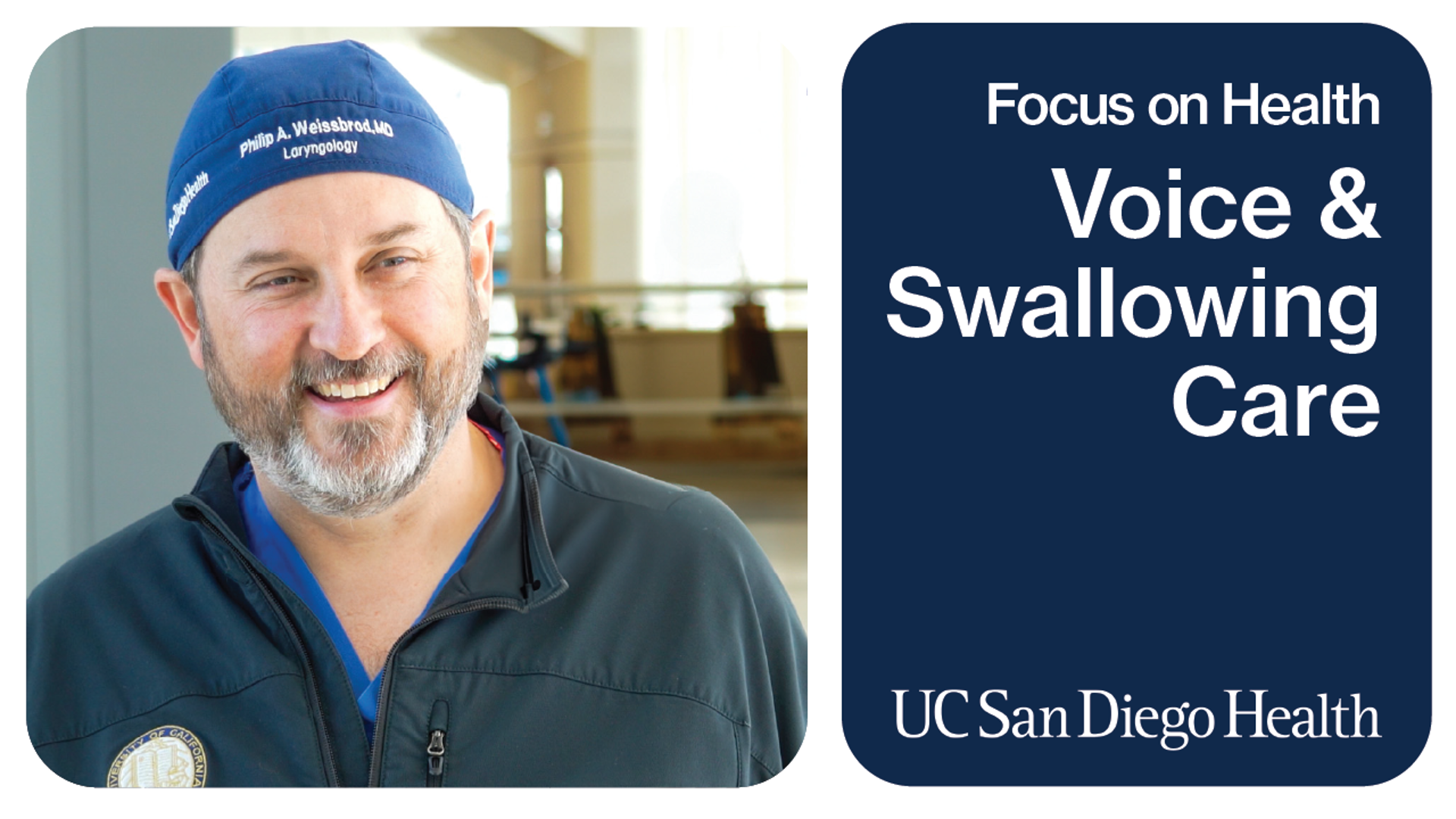Voice & Swallowing Care
As a regional center of excellence, UC San Diego Health offers a multidisciplinary approach to care for complex disorders of the voice and swallowing systems.
Our team is at the forefront of clinical research and offers a wide range of state-of-the-art surgical and behavioral therapy options to help restore and enhance the ability to talk, eat and breathe.
Consultation
During your initial consultation, you will undergo a comprehensive evaluation that will include:
- Complete medical history
- Physical examination
- Possible endoscopic evaluation of the vocal fold (either transoral or transnasal endoscopy or videostroboscopy)
Our team will use this information to create a diagnostic and therapeutic plan tailored to your specific needs.
Voice Disorders
Swallowing Disorders
Video: Expert Help for Voice, Airway and Swallowing Disorders

Otolaryngologist Philip Weissbrod, MD, describes how he and his team go the extra mile for patients with vocal, breathing and swallowing challenges.
Airway Disorders
The airway is composed of structures that include the pharynx (back of the nose and mouth), trachea (windpipe), larynx (voice box), and bronchi (lung passages). Conditions that can lead to an airway disorder include:
- Narrowing or scarring of the pharynx, larynx, subglottis and trachea
- Post-radiation airway narrowing
- Bilateral vocal cord paralysis
If you have an airway disorder you may experience:
- Wheezing, stridor (noisy breathing)
- Shortness of breath
Some airway disorders may improve with behavioral breathing and voice therapy. We also offer office-based, minimally invasive and open surgical procedures such as:
- Laryngoscopy and bronchoscopy
- Airway dilation
- Modification of vocal cord position to open airway (cordotomy, arytenoidectomy, stitch lateralization)
- Tracheal resection
Feeding Disorders
We provide care for infant feeding disorders with dual specialty of speech-language pathology and lactation consultation.
Symptoms of a feeding disorder include:
- Latching difficulty
- Infant weight loss
- Need for breastfeeding supplementation
- Sore nipples
- Inverted, flat or short nipples
- Tongue tie
- High palate
- Feeding fatigue
- Low milk supply
- Nipple vasospasm
- Thrush
- Engorgement
Depending on the symptoms and cause of the feeding condition, our team may include one or several of the following therapies in your treatment plan:
- Latching assistance
- Measuring breast milk intake
- Managing appropriate infant weight gain
- Supplemental nursing regimens
- Rental of hospital-grade scales and pumps
- Increasing milk supply
- Transition to full oral and breastfeeds after NICU
- Frenulum resection